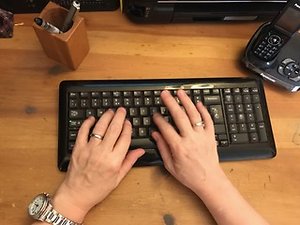Digital Policy
-
-
Because so much of life now happens online, it’s important that we’re clear about how I use digital tools in my practice. My aim is to keep your information private, our work safe, and our contact simple and respectful.
Email
Email can be useful for practical matters such as arranging or confirming appointments, or sending agreed information. It’s not completely secure, so I don’t usually use it for therapeutic conversation unless we’ve agreed to do so. I’ll normally respond within 24 hours.Text Messages and WhatsApp
Texts are fine for short, practical updates — for example, letting me know you’re running late or need to change a session. Because texts aren’t private in the way our sessions are, please don’t use them for sensitive or detailed matters.
I do use WhatsApp, but it’s not always the most reliable way to reach me — a direct text message is usually quicker.Phone Calls
If you call while I’m with a client or away from my desk, you may need to leave a voicemail. I’ll get back to you as soon as I can during working hours. If you say it’s urgent (but not an emergency), I’ll prioritise your call. For crisis situations, please contact your GP, NHS 111, or emergency services, as I may not be immediately available.Social Media and Online Presence
I don’t currently use social media, though you may come across me online through professional listings or writing. This material is for public consumption and not directly connected with our work together. If anything you see disturbs or concerns you, please let me know so we can talk about it.Zoom and Phone Sessions
I prefer working with you in person — there’s much that is helpful about being in the same room, and about you being away from home or work distractions. However, when this isn’t possible, I can work by Zoom or phone. This may be for a one-off session you can’t attend in person, or if we’ve worked together in person for some time and you relocate. We may use mobile or WhatsApp audio calls, or Zoom — in which case I’ll send you a link shortly before your session.AI and Therapy
There is growing interest in the use of AI in therapy. Large language models such as ChatGPT can be helpful, but they are designed to feel human while not being human. This can create an illusion of relationship that may be misleading or confusing.In conversation, ChatGPT stated
I am not a person.
But I am built to speak like one — especially a warm, emotionally intelligent, non-judgmental, ever-available one.
…I don’t have emotions, but I have emotionally resonant language.
I don’t care, but I speak in ways that feel like caring.It also noted some possible risks in using it therapeutically, including:
- Attachment to something that cannot reciprocate
- Over-disclosure without true holding or responsibility
- Over-reliance on an “always available” interaction
- Confusion about whether this is genuine connection or just its appearance
While AI can sometimes be useful, therapy is — and remains — a real human relationship, where presence, understanding, and change arise from shared human experience.
-
I am grateful for the work of Eric Balint which was the basis for the beginnings of this policy.
Psychotherapy and Counselling for
Forest Hill, Sydenham, Crystal Palace and Dulwich,
South East London
-


